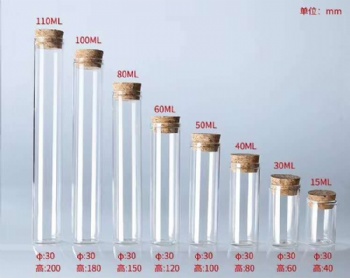Tel:+86-311-88761211 mob:+86-13831197770 skype:+86-13831197770 Whatsapp: +86-13831197770
Glass And Plastic: 7 Factors To Consider When Packaging Your Products(2)
4. Which is more expensive, glass or plastic?
Glass is not only more expensive to transport, but also more expensive to produce, mainly due to the large amount of heat required in the production process. According to the Energy Information Administration (EIA) survey on the manufacturing industry, the glass manufacturing industry is an energy-intensive industry, accounting for 1% of the total industrial energy use. Natural gas is the main fuel for these energy sources.
The melting point of plastic is much lower than that of glass, and less energy is required in the production process. With the development of new plastic molding technology, manufacturing plastic containers has become more economical. It was even cheaper to produce new plastic than recycling. Plastics surpass glass in production and transportation.
5. Environmental factors and recycling
Although the production and transportation of glass may require more energy, it is 100% recyclable, which means that every time the glass is recycled, the quality of the product obtained will not decrease. Glass can also be reused because it can be cleaned and disinfected. Most plastic can be recycled, but it can be degraded every cycle. This means that when you recycle a plastic bottle, it is usually not used to make another bottle, but to synthesize clothes or carpets. This process is often referred to as "loop down".
The environmental impact of glass and plastic is unclear. In the United States, glass waste accounts for 5% of total waste, which means that even if glass is recyclable, it is often thrown into landfills. Due to the energy required, the production of disposable glass containers has a greater impact on the environment than disposable plastic containers. However, although glass is durable, it is made of natural materials. Compared with glass, plastic is relatively new, but plastic accounts for 20% of landfill waste.
6. Will glass and plastic affect my health?
Glass is non-toxic, has no potentially harmful chemicals, and generally does not have a negative impact on your health. It is less porous than plastic. It also has a high resistance to leaching into your product, even if it is contained for a long time. As the public's awareness of bisphenol A (BPA) and other potentially hazardous chemicals in plastics increases, organic or pure natural products may need to consider glass products.
However, most plastics do not contain BPA. Plastics are notorious for their toxicity and tendency to absorb products. If used improperly, the plastic may penetrate the harmful chemicals in your product. Inappropriate or extreme storage conditions can accelerate this process. Taking precautions to ensure that your plastic container is suitable for your product and its use can ensure that the use of plastic is a safe alternative to glass.
7. What's inside and how it will be used
A big deciding factor between glass and plastic is what is best for your product. If it is a strong drink or a liquid that needs to be carbonated, the cup may be the best for you. Thick substances, such as shampoos and lotions, are usually packed in a plastic bottle, which you can squeeze out to dispense. Glass vs. plastic may make your natural beverages sell better, but products that children or babies come in contact with may be ideal plastics.
We are glass bottle supplier. If you are interested in our glass bottle, please feel free to contact us.

Tel:+86-311-88761211
Fax :+86-311-88761211
Mobile:+86-13831197770
E-mail: admin@mkingcn.com
Skype: +86-13831197770
Whatsapp: +86-13831197770



Copyright 2025 © MyKang Trading Co.,LTD All Rights Reserved.